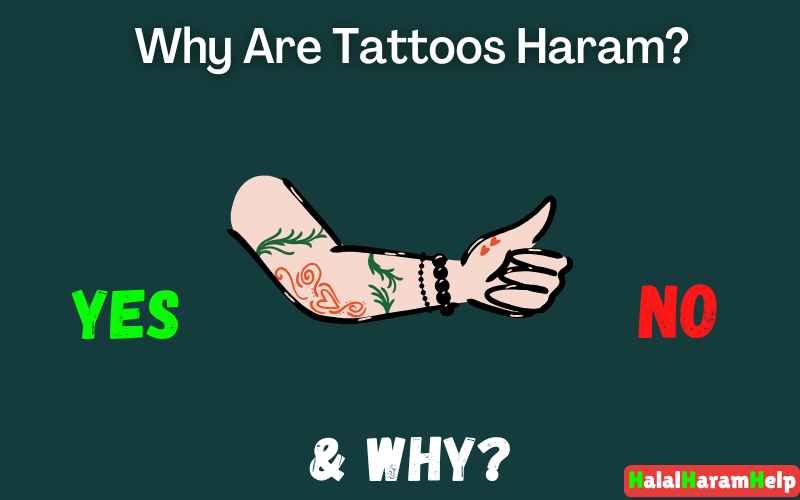In Islam, tattoos are often viewed as haram (forbidden) due to their permanent nature and the alterations they make to the body, which is considered a trust from Allah.
This prohibition is rooted in the teachings of the Quran and Hadith, emphasizing the importance of preserving the natural form Allah has created.
Beyond the spiritual implications, tattoos may also pose health risks and involve unnecessary pain, both of which are discouraged in Islam.
While some cultural practices may normalize tattoos, Islamic principles encourage believers to maintain their physical and spiritual purity, avoiding practices that contradict these values.

Why Are Tattoos Haram?
Tattoos are considered haram in Islam for several reasons, rooted in religious teachings and practical considerations.
These reasons highlight the spiritual, physical, and ethical implications of altering the body permanently.
1. Altering Allah’s Creation
One of the key reasons tattoos are forbidden in Islam is the prohibition against altering the natural form that Allah has created. The Quran states:
“And I will command them so they will change the creation of Allah.” (Surah An-Nisa: 4:119)
This verse emphasizes that modifying Allah’s creation without necessity is an act of defiance against His wisdom.
Tattoos, as permanent marks on the body, are seen as a direct alteration that contradicts this teaching. Islam encourages believers to embrace their natural appearance as a sign of gratitude to Allah.
Also see is septum piercing haram.
2. Impact On Spiritual Practices
Another concern regarding tattoos is their potential impact on spiritual practices like wudu (ablution).
For Muslims, wudu is an essential purification process performed before prayers. If the tattoo creates a barrier on the skin, it may prevent water from fully reaching the area during ablution, rendering the ritual incomplete. Since proper wudu is required for valid prayers, tattoos can interfere with a core element of Islamic worship.
3. Association With Idolatry
In some cases, tattoos may carry spiritual or symbolic meanings that conflict with Islamic teachings.
Historically, tattoos have been linked to acts of idolatry or practices of worshipping false gods.
Even in modern contexts, tattoos can symbolize ideologies or beliefs that contradict Islamic monotheism (Tawheed). This potential association makes tattoos problematic from a religious standpoint.
4. Causing Unnecessary Pain
Islam strongly discourages causing harm or unnecessary pain to oneself. The Prophet Muhammad (peace be upon him) said:
“There should be neither harming nor reciprocating harm.” (Sunan Ibn Majah 2340)
Getting a tattoo involves puncturing the skin repeatedly with needles, often causing significant pain.
Since Islam promotes self-care and discourages self-inflicted harm, tattoos are viewed as a practice that goes against this principle.
5. Health Risks
Tattoos can pose serious health risks, including infections, allergic reactions, and exposure to unsafe or unsterile equipment.
As Islam places a strong emphasis on safeguarding health and well-being, engaging in practices that may harm the body is discouraged. Protecting one’s health is considered a duty in Islam, and avoiding risky procedures like tattooing aligns with this responsibility.
6. Lack Of Necessity
Islamic teachings often evaluate actions based on necessity and benefit. Tattoos are generally considered unnecessary alterations to the body, serving no essential purpose other than aesthetic or cultural expression.
Since they do not contribute to a person’s physical or spiritual well-being, their permissibility is questioned under Islamic law.
You might also like is tongue piercing haram.
Conclusion
In Islam, tattoos are considered haram due to their permanent alteration of the body, potential interference with spiritual practices, and association with harm and unnecessary pain.
The human body is viewed as a trust from Allah, and believers are encouraged to maintain it naturally as a sign of gratitude and submission to His will.
While tattoos may be seen as a form of self-expression in some cultures, Islamic teachings prioritize actions that preserve spiritual purity, health, and alignment with divine guidance.
By understanding these principles, Muslims are reminded of the importance of respecting and valuing the creation of Allah.

